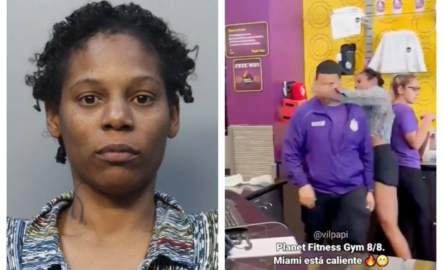“You said he reached sir
but he didn’t have no piece sir
But now he rest in peace sir
in the belly of the beast sir”, sings Haitian-American superstar Wyclef Jean.
Wyclef penned the lyrics to the hit song Diallo Diallo on the back of an infamous killing of an unarmed black man in New York on February 4, 1999, by police.
Amadou Diallo’s death sparked conversations on police brutality and racial profiling in the United States and even beyond. The 23-year-old was Guinean and so that time, the echoes of the shots in New York rang some 9000 miles away on the African continent.
For Africans, the confusion was genuine. Racism in America is old news to Africans yet the intricacies of racial politics are not what most people know on the continent.
Even in America, 1999 was before the time big media decided some of these shootings had to be reported for what they were: racially charged.
The famous New York Times went with the headline, “Officers in Bronx Fire 41 Shots, And an Unarmed Man Is Killed“; the race of the deceased decidedly unnecessary.
But as these things go, Diallo would count as another statistic in the tall list of lives shortened by suspicions bordering on the myths of melanin.
And we tend to forget that he was a person but not a number. That he had a story of family and friends who loved him before Wyclef had his chart-topping song singing his name.
“He was a skinny guy. Why would the police shoot somebody of that nature 30 or 40 times? We see the police and we give them all the respect we have”, Diallo’s uncle Mamadou told the Times in 1999.
Diallo had gone to the United States having lived and schooled in Guinea, Thailand and Singapore. His family moved a lot.
When he was older, Diallo wanted to try his luck in America, joining a cousin to set up a business. But he had hopes of living in America for longer so he was moved to file for asylum under false pretenses.
He told authorities in his application that he was from Mauritania, a war-ravaged West African country not far from his native of Guinea. He was desperate for a chance at the American dream.
Diallo knew what this meant and he stayed on course. Investigations after his death revealed that he had never had any run-ins with the law. He only peddled video cassettes and socks on Bronx’s 14th street.
The young man had wanted to go to college, telling his mother he had saved $9,000 to help him get started. He also wanted to get married to Bente, a woman he had spoken to his mother about.
It does not seem Diallo was different from any 23-year-old immigrant from an impoverished country looking to legitimately pursue an American dream.
But this dream was cut short by being at the wrong place at the wrong time. But also perhaps, by having the ‘wrong’ skin colour.
Nineteen of the 41 shots fired by officers Sean Carroll, Richard Murphy, Edward McMellon and Kenneth Boss hit Diallo. On that night, they wore plain-clothes to do their jobs as part of the now-defunct Street Crimes Unit.
They would later claim that they thought he had pulled out a gun only to find out it was a wallet.
The officers also said that Diallo matched the descriptions of a serial rapist in the Bronx area.
There were conflicting accounts by a witness and the police officers. While the former said they started shooting without prior warning, the officers insisted they had identified themselves as cops and asked Diallo to put his hands up.
They said he ran away despite their warning and when they shot him, he was not facing them.
The officers were all acquitted and discharged a year after the incident. One of them, Boss, would later be promoted to sergeant.
Diallo’s mother Kadiatou described Boss’ promotion as a “stab in the heart”. But she would not have her son die for nothing.
In 1999, Kadiatou told an audience in Chicago that she wanted lessons from Diallo’s death to be learned for the sake of “all the victims of the world so that such a thing will not happen again”.
Her intentions were noble but the reality is nasty. The phrase “unarmed black man” has in the last 20 years had mournful usage far too many times.
In the wake of Diallo’s death, author Malcolm Gladwell dedicated a chapter in his book, Blink: The Power of Thinking Without Thinking, that discussed his conversations with psychologists on what it means for police officers to see black men holding any object.
A rather jejune topic, one might say. It, however, has real-world impacts that cost mothers their sons, sisters their brothers and wives their husbands.
A black man holding an object in the presence of a police officer is the reason Amadou Diallo is buried six-feet beneath the earth in his hometown of Hollande Bourou, Guinea.










